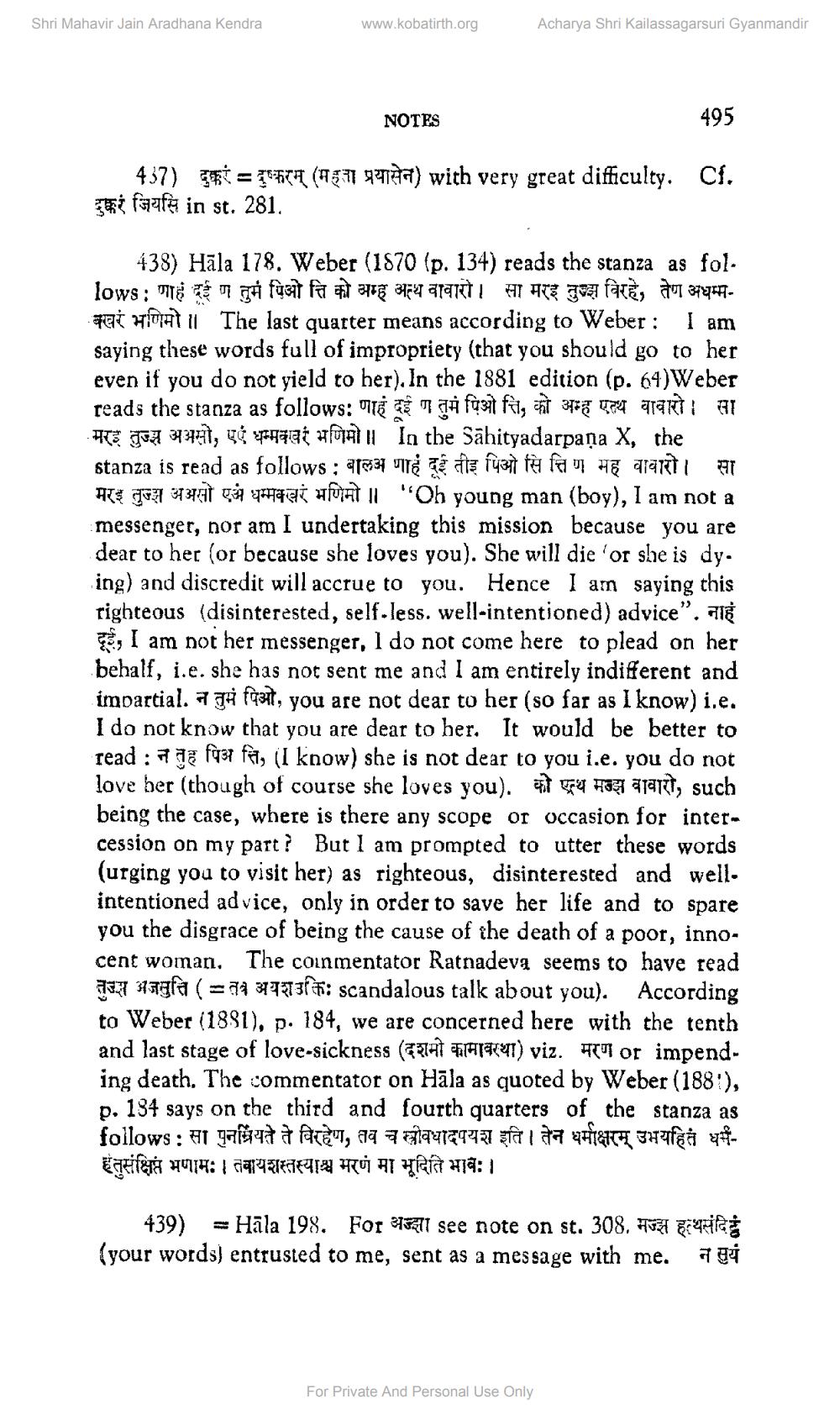________________
Shri Mahavir Jain Aradhana Kendra
www.kobatirth.org
NOTES
Acharya Shri Kailassagarsuri Gyanmandir
495
437) दुकरं = दुष्करम् (महता प्रयासेन) with very great difficulty. Cf. दुष्करं जियसि in st. 281.
438) Hala 178. Weber (1870 (p. 134) reads the stanza as follows : णाहं दई ण तुमं पिओ त्ति को अह अन्य वावारो। सा मरह तुझा विरहे, तेण अधम्मThe last quarter means according to Weber: I am
saying these words full of impropriety (that you should go to her even if you do not yield to her). In the 1881 edition (p. 64) Weber reads the stanza as follows: नाहं दई ण तुमं पिओ त्ति, को अम्ह एत्थ वावारो । सा मरह तुज्झ अअसो, एवं धम्मक्खरं भणिमो ॥ In the Sāhityadarpana X, the stanza is read as follows : बालअ णाहं दूई तीइ पिओ सित्तिण मह वावारो । सा Ace gen auûì çå am "Oh young man (boy), I am not a messenger, nor am I undertaking this mission because you are dear to her (or because she loves you). She will die 'or she is dying) and discredit will accrue to you. Hence I am saying this righteous (disinterested, self-less. well-intentioned) advice".
I am not her messenger, I do not come here to plead on her behalf, i.e. she has not sent me and I am entirely indifferent and impartial. ft, you are not dear to her (so far as I know) i.e. I do not know that you are dear to her. It would be better to read: ff, (I know) she is not dear to you i.e. you do not love her (though of course she loves you).an, such being the case, where is there any scope or occasion for intercession on my part? But I am prompted to utter these words (urging you to visit her) as righteous, disinterested and wellintentioned advice, only in order to save her life and to spare you the disgrace of being the cause of the death of a poor, innocent woman. The coinmentator Ratnadeva seems to have read तुझ अजमुत्ति (= तत्र अवशउक्तिः scandalous talk about you ). According to Weber (1881), p. 184, we are concerned here with the tenth and last stage of love-sickness (Î m) viz. or impending death. The commentator on Hala as quoted by Weber (1881), p. 184 says on the third and fourth quarters of the stanza as follows: सा पुनप्रियते ते विरहेण तव च स्त्रीवधादपयश इति । तेन धर्माक्षरम् उभयहितं धर्मंहं तु संक्षिप्तं भणामः । तवायशस्तस्याश्च मरणं मा भूदिति भावः ।
For Private And Personal Use Only
439) = Hala 198. For अज्झा see note on st. 308. मज्झ हत्थसंदिट्ठे (your words) entrusted to me, sent as a message with me. न सुर्य




